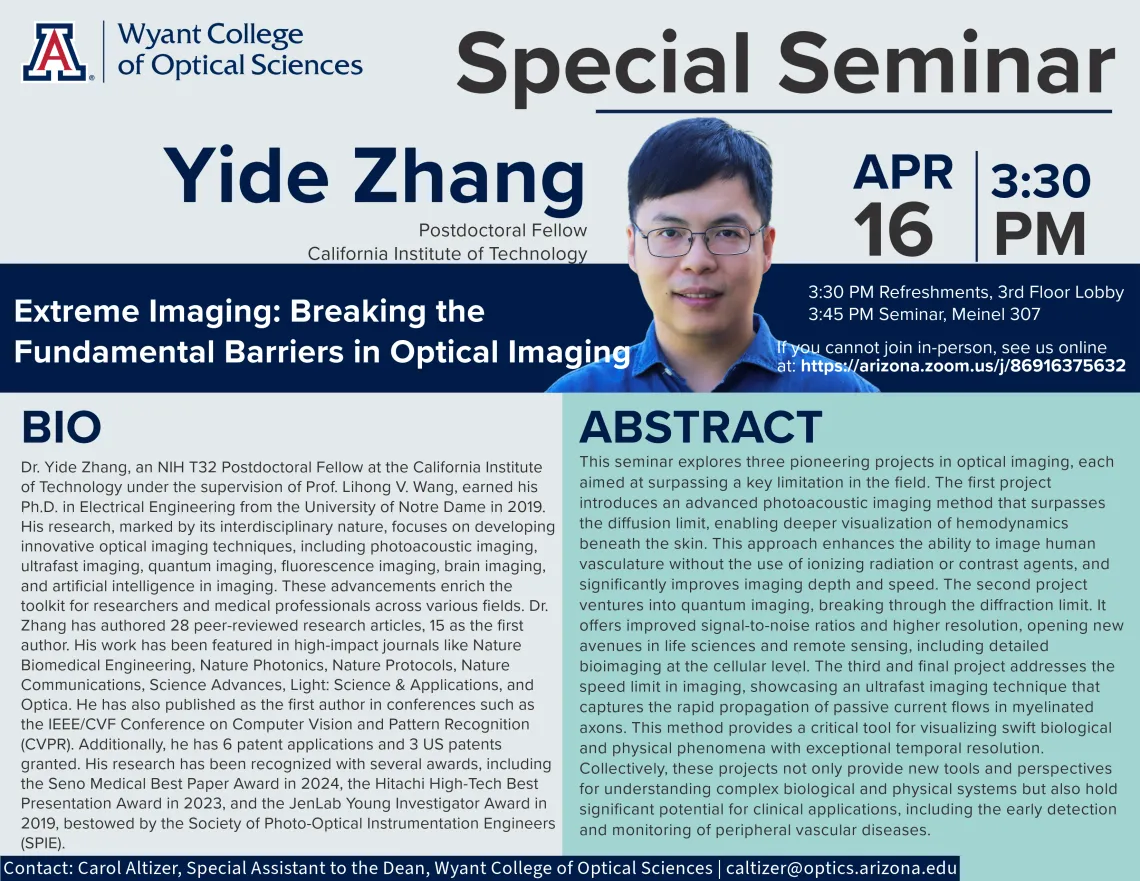
When
Where
Title
Extreme Imaging: Breaking the Fundamental Barriers in Optical Imaging
Abstract
This seminar explores three pioneering projects in optical imaging, each aimed at surpassing a key limitation in the field. The first project introduces an advanced photoacoustic imaging method that surpasses the diffusion limit, enabling deeper visualization of hemodynamics beneath the skin. This approach enhances the ability to image human vasculature without the use of ionizing radiation or contrast agents, and significantly improves imaging depth and speed. The second project ventures into quantum imaging, breaking through the diffraction limit. It offers improved signal-to-noise ratios and higher resolution, opening new avenues in life sciences and remote sensing, including detailed bioimaging at the cellular level. The third and final project addresses the speed limit in imaging, showcasing an ultrafast imaging technique that captures the rapid propagation of passive current flows in myelinated axons. This method provides a critical tool for visualizing swift biological and physical phenomena with exceptional temporal resolution. Collectively, these projects not only provide new tools and perspectives for understanding complex biological and physical systems but also hold significant potential for clinical applications, including the early detection and monitoring of peripheral vascular diseases.
Bio
Dr. Yide Zhang, an NIH T32 Postdoctoral Fellow at the California Institute of Technology under the supervision of Prof. Lihong V. Wang, earned his Ph.D. in Electrical Engineering from the University of Notre Dame in 2019. His research, marked by its interdisciplinary nature, focuses on developing innovative optical imaging techniques, including photoacoustic imaging, ultrafast imaging, quantum imaging, fluorescence imaging, brain imaging, and artificial intelligence in imaging. These advancements enrich the toolkit for researchers and medical professionals across various fields. Dr. Zhang has authored 28 peer-reviewed research articles, 15 as the first author. His work has been featured in high-impact journals like Nature Biomedical Engineering, Nature Photonics, Nature Protocols, Nature Communications, Science Advances, Light: Science & Applications, and Optica. He has also published as the first author in conferences such as the IEEE/CVF Conference on Computer Vision and Pattern Recognition (CVPR). Additionally, he has 6 patent applications and 3 US patents granted. His research has been recognized with several awards, including the Seno Medical Best Paper Award in 2024, the Hitachi High-Tech Best Presentation Award in 2023, and the JenLab Young Investigator Award in 2019, bestowed by the Society of Photo-Optical Instrumentation Engineers (SPIE).
